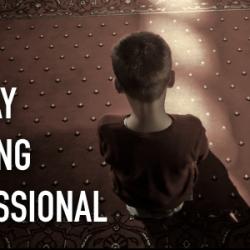There’s a pretty interesting op-ed in the New York Times by Molly Worthen from the University of North Carolina, Chapel Hill. She’s writing on three subjects I care about: immigration, evangelicalism, and the Social Gospel of Walter Rauschenbusch. I think she says some interesting things. Here’s an excerpt:
It’s true that Latino Americans tend to be religious (according to Gallup, 54 percent are Catholic and 28 percent are Protestant). However, even those at the forefront of collaboration with white evangelicals stress that important differences remain. Jesse Miranda is a Pentecostal who founded a national organization for Latino Protestants, Alianza de Ministerios Evangélicos Nacionales (AMEN), in 1992. “We used the term ‘evangélico’ when I founded AMEN, and said we won’t use the word ‘evangelical’ so the media won’t identify us with our white brethren,” he said.
Most Latino evangelicals are recent converts to Protestantism with no stake in the battles between fundamentalists and modernists that divided white Protestants a hundred years ago, or in the more recent campaigns of the Christian right. They care more about education for their children than quarreling over the theory of evolution.
This difference is not just political, but theological, and has consequences for the fate of illegal immigrants. For a Christian, the question of whether an undocumented immigrant is a criminal or a victim trapped in an unjust system depends on how one thinks about sin and human responsibility.
A century ago, preachers of the “Social Gospel” argued that sin was not only a matter of personal depravity: it was also a social problem. Our society, built by flawed human beings, is full of institutionalized sin, of greed and cruelty cemented in the structures that govern our lives.
The theologian Walter Rauschenbusch lamented in 1913 that “as long as a man sees in our present society only a few inevitable abuses and recognizes no sin and evil deep-seated in the very constitution of the present order, he is still in a state of moral blindness.” He urged Christians “to see through the fictions of capitalism.”
Conservative evangelicals decried Social Gospelers as liberals who replaced soul-winning with social work — or worse, socialism. They stressed personal responsibility and argued that genuine social change could come only through converting one sinner at a time to Christ.
Latino Protestants may share the core doctrines of white evangelicals, but not the fusion of Christianity and libertarianism that has come to pervade the right, perhaps in part because they have intimate experience with the inequalities ingrained in American institutions.












